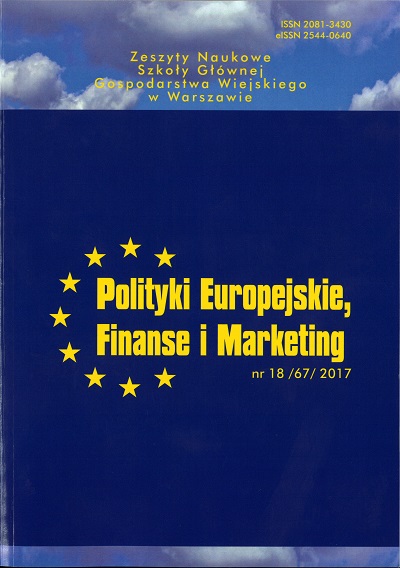Main Article Content
Article Details
Babiarz S. [w:] Babiarz S., Dauter B., Gruszczyński B., Hauser R., Kabat A., Niezgódka-Medek M., Ordynacja podatkowa. Komentarz, Warszawa 2004.
Babiarz S., Dauter B., Gruszczyński B., Hauser R., Kabat A., Niezgódka-Medek M.: Ordynacja podatkowa. Komentarz, Warszawa 2004
Baniak S.: Prawo karne skarbowe. Wolters Kluwer, Warszawa 2006
Hołyst B., Kryminalistyka, LexisNexis, Warszawa 2007.
Keen M., Smith S.: VAT Fraud and Evasion: What Do We Know, and What Can be Done? IMF Working Paper 2007 za: Lipniewicz R., Docelowy system VAT w Unii Europejskiej. Harmonizacja opodatkowania transakcji wewnątrzwspólnotowych, Oficyna 2010, lex/El. (Crossref)
Kozub- Skalska S.: Mechanizm przestępstw karuzelowych i metody ich ograniczenia, Zeszyty Naukowe Szkoły Głównej Gospodarstwa Wiejskiego w Warszawie Polityki Europejskie, Finanse i Marketing nr 17 (66) 2017. (Crossref)
Mastalski R., [w:] Adamiak B., Borkowski J., Mastalski R., Zubrzycki J.: Ordynacja podatkowa. Komentarz 2003, Wrocław 2003
Mastalski R., [w:] Adamiak B., Borkowski J., Mastalski R., Zubrzycki J., Ordynacja podatkowa. Komentarz 2004, Wrocław 2004.
Nowak K.: Wybrane zagadnienia dotyczące działalności tzw. słupów w ramach zorganizowanych grup przestępczych dopuszczających się oszustw podatkowych w związku z obrotem wyrobami stalowymi. Przegląd Bezpieczeństwa Wewnętrznego nr 10 (6) 2014
Nowak K.: Wybrane zagadnienia dotyczące działalności tzw. słupów w ramach zorganizowanych grup przestępczych dopuszczających się oszustw podatkowych w związku z obrotem wyrobami stalowymi. Przegląd Bezpieczeństwa Wewnętrznego nr 10 (6) 2014
Olesińska A. [w:] Brzeziński B., Kalinowski M., Masternak M., Olesińska A., Ordynacja podatkowa. Komentarz, Toruń 2002.
Pabiański T., Śliż W.: Zorganizowane działania przestępcze wykorzystujące mechanizmy konstrukcyjne podatku VAT, Przegląd Podatkowy, 1/2007.
Tomaszewski T.: Dowód z opinii biegłego w procesie karnym, Kraków 1998
Turek J.: Biegły sądowy i jego czynności, Monitor Prawniczy 24/2007.
Ustawa z dnia 10 września 1999 r. Kodeks karny skarbowy. (t.j. Dz. U. z 2016 r. poz. 2137 z późn. zm.).
Ustawa z dnia 29 sierpnia 1997 r. - Ordynacja podatkowa. (t.j. Dz. U. z 2017 r. poz. 201 z późn. zm.).
Ustawa z dnia 6 czerwca 1997 r. Kodeks karny. (t.j. Dz. U. z 2016 r. poz. 1137 z późn. zm.).
Ustawa z dnia 6 września 2001 r. o dostępie do informacji publicznej. (t.j. Dz. U. z 2016 r. poz. 1764). Wilk L.: Firmanctwo - art. 55 kodeksu karnego skarbowego, Prok. i Pr. 2001 nr 6.
Wilk L.: Firmanctwo - art. 55 kodeksu karnego skarbowego, Prok. i Pr. 2001 nr 6
Wilk L.: Przestępstwa i wykroczenia skarbowe [w:] Prawo gospodarcze i handlowe. Tom. 10. Prawo karne gospodarcze, pod redakcją Górniok O., Warszawa 2003
Wyrok Wojewódzkiego Sądu Administracyjnego w Warszawie z dnia 3 lutego 2017 r. III SA/Wa 3363/15 Znikający podatnik, bufor i broker w karuzeli podatkowej.
Zalewski D.: Odpowiedzialność za firmanctwo, Monitor Podatkowy 2009 nr 4, Mastalski R. [w:] Adamiak B., Borkowski J., Mastalski R., Zubrzycki J., Ordynacja podatkowa. Komentarz 2004, Wrocław 2004.
Downloads
- , The threats of the shadow economy for public finance in Poland , The Scientific Journal European Policies, Finance and Marketing: No. 18(67) (2017)
You may also start an advanced similarity search for this article.
- Sonia Kozub-Skalska, THE MECHANISM OF CAROUSEL OFFENSES AND METHODS OF RESTRICTING THEM , The Scientific Journal European Policies, Finance and Marketing: No. 17(66) (2017)

This work is licensed under a Creative Commons Attribution-NonCommercial 4.0 International License.
All articles published in European Policies, Finance and Marketing are fully open access. In this way, the scientific research results contained in articles published in our journal are available to every reader free of charge - in accordance with the CC BY-NC license (https://creativecommons.org/licenses/by-nc/4.0/).
According to the CC BY-NC license you are free to:
- Share — copy and redistribute the material in any medium or format
- Adapt — remix, transform, and build upon the material
The licensor cannot revoke these freedoms as long as you follow the license terms.
Under the following terms:
- Attribution — You must give appropriate credit , provide a link to the license, and indicate if changes were made . You may do so in any reasonable manner, but not in any way that suggests the licensor endorses you or your use.
- NonCommercial — You may not use the material for commercial purposes .
- No additional restrictions — You may not apply legal terms or technological measures that legally restrict others from doing anything the license permits.
Source: https://creativecommons.org/licenses/by-nc/4.0/deed.en
According to that, the authors retain the copyright and full publishing rights.





